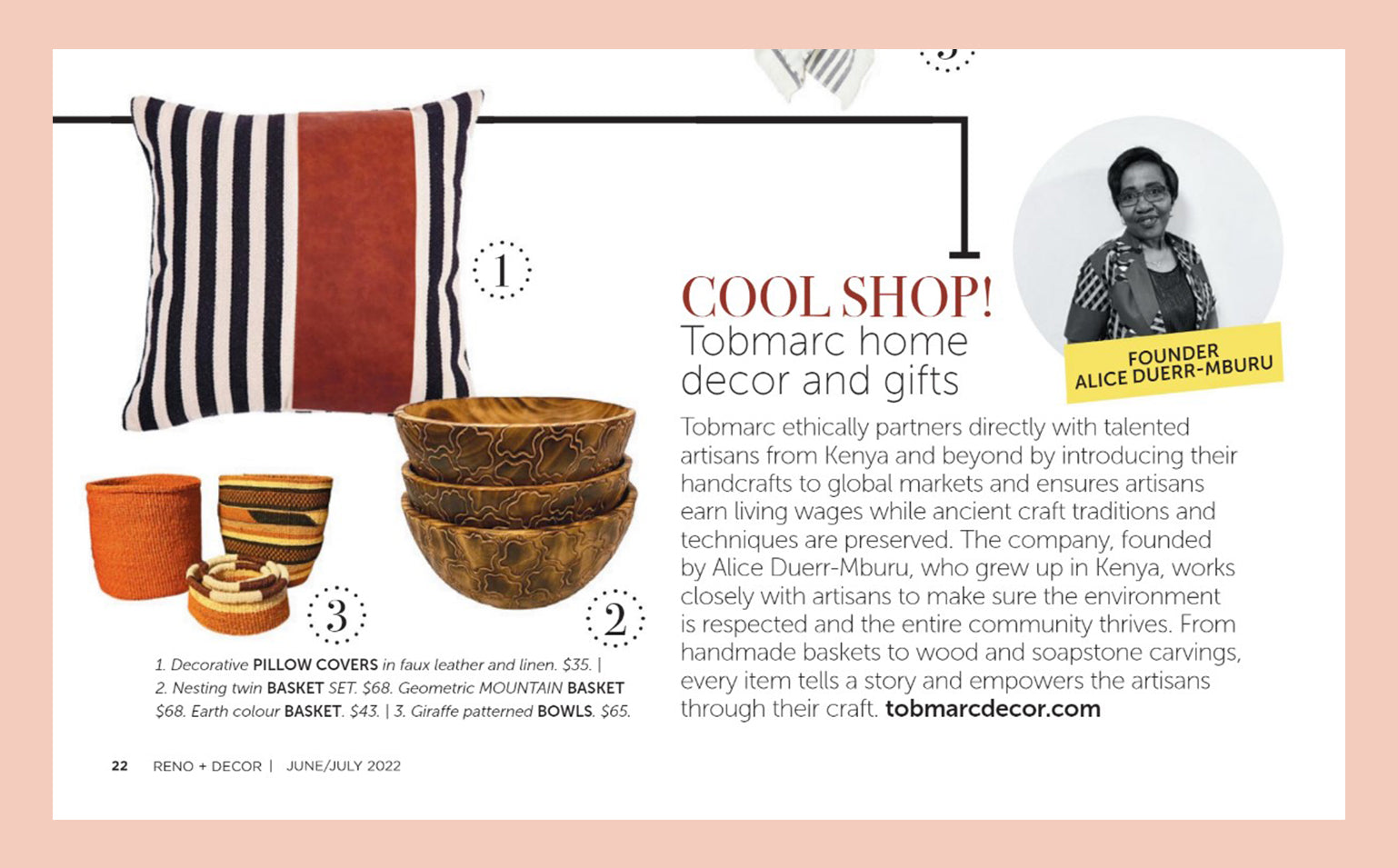Limited offer
Early Spring
The Entire Store is 25% Before shipping. Discount will be applied at the check-out
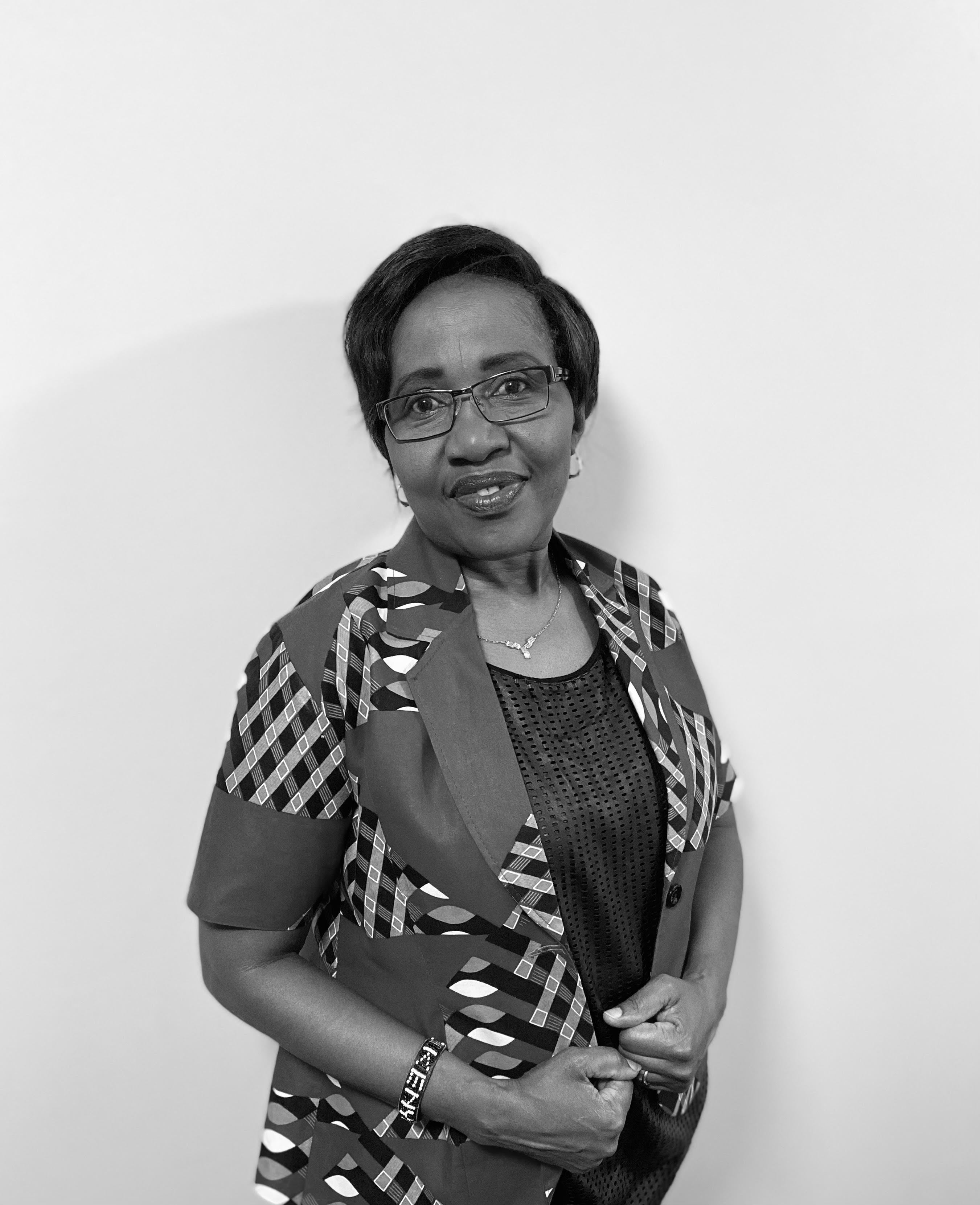
MEET ALICE -TOBMARC FOUNDER
Born and raised in a small village in Kenya Alice grew up surrounded by rich cultural traditions, craftsmanship, and a strong sense of community. With a passion for making the world a better place, Alice later moved to Canada and pursued her education in International Development Studies where she gained a deeper understanding of global inequalities and sustainable solutions.
At the beginning of the Covid-19 pandemic in 2020, Alice witnessed how Kenyan artisans—who relied heavily on tourism—struggled to sustain their craft and livelihood. Their remarkable talent and cultural heritage deserved a wider audience, and Alice knew there had to be a way to bridge the gap. That’s how Tobmarc was born. Tobmarc is more than a business—it’s a mission. We ethically collaborate with artisans, bringing their handcrafted pieces to North America while sharing the rich stories behind their work. Every item we offer is a reflection of tradition, skill, and resilience. By supporting Tobmarc, customers don’t just buy a product; they become part of a movement that empowers artisans and preserves cultural heritage for generations to come.
OUR STORY
Welcome to Tobmarc Home Decor and Gifts, where every product tells a story. Founded in 2021 during the pandemic, our mission is to celebrate cultural heritage through handmade decor, artisanal gifts, ethically sourced food, and beverages from around the world. What started as a passion for supporting artisans has grown into a global marketplace, connecting customers with authentic craftsmanship from nearly 30 countries.
At Tobmarc, we believe that every item carries the spirit of its maker. That’s why we work directly with talented artisans, farmers, and designers, ensuring that their skills, traditions, and values are preserved and shared. Whether it’s hand-carved home decor, ethically harvested coffee and tea, or unique fashion accessories, each piece is crafted with care, authenticity, and sustainability in mind.
Based in Mississauga, Ontario, our commitment goes beyond selling products—we empower communities, promote fair trade, and bring the world’s cultures into your home. Every purchase supports skilled creators and keeps their traditions alive.
Discover the beauty of global craftsmanship with Tobmarc Home Decor and Gifts—where culture meets creativity.
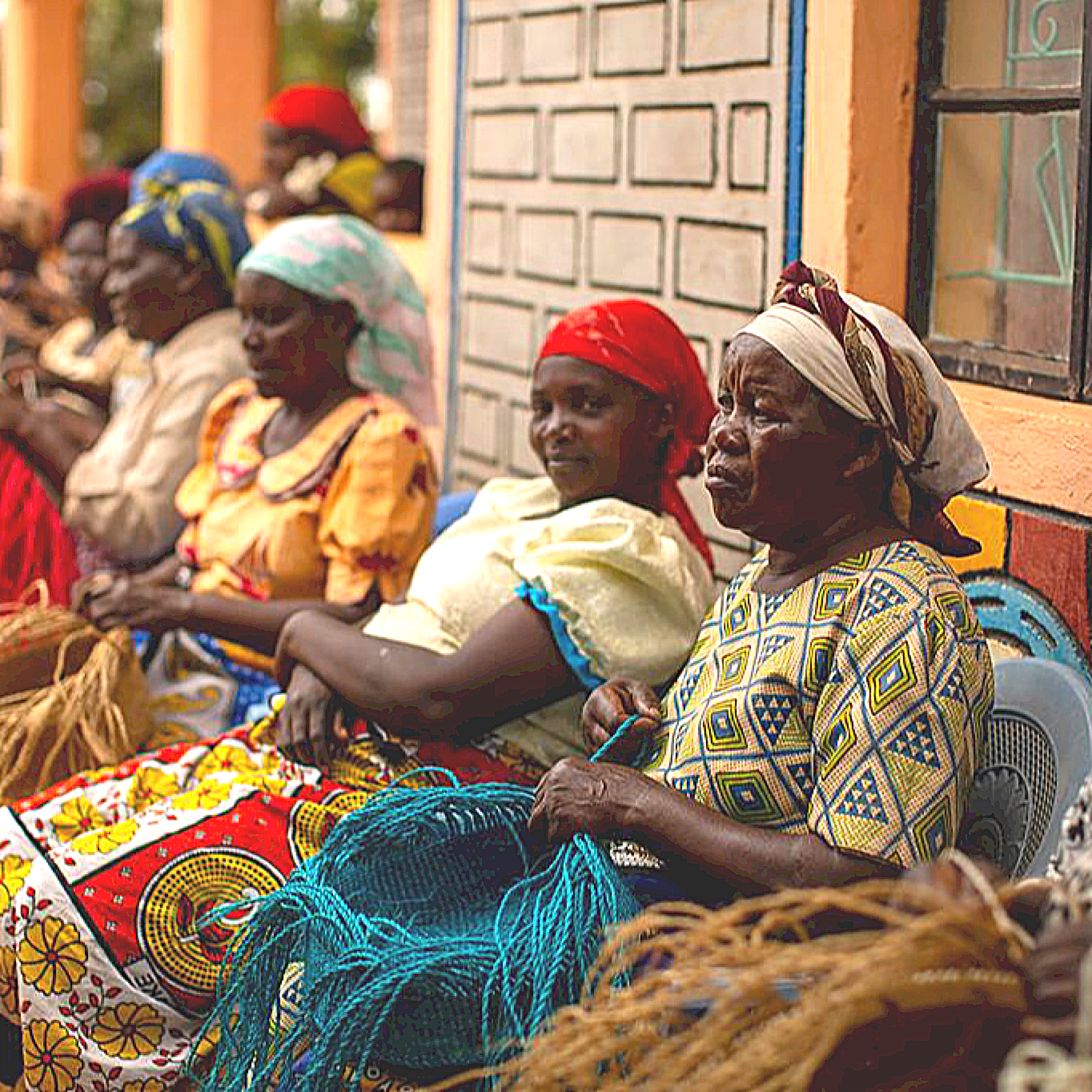
MEET THE WEAVERS
Basket Weaving
The story begins in the remote rural villages of Kenya, where skilled artisans have been weaving, carving and handcrafting for generations. Women and their families grow and harvest sustainable plants such as sisal, an abundant local cactus.
The women practice traditional spinning and weaving techniques passed down from mother to daughter for generations. Weaving is a vital tradition for the women in these farming communities. Each one-of-a-kind, beautiful basket, handmade with love, empowers women to support their families while keeping their craft traditions alive for future generations.
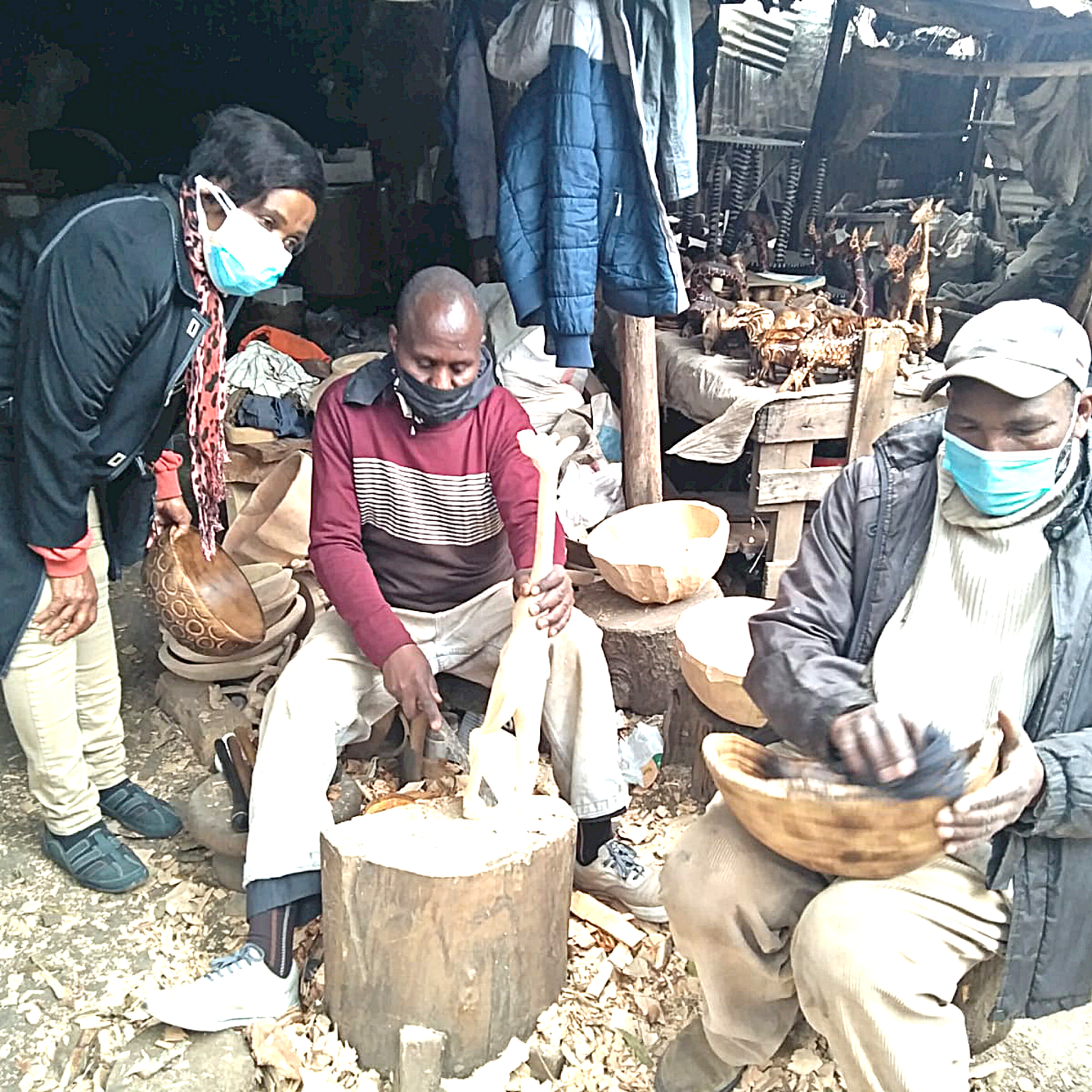
WOOD CARVING
Overline text
Traditional wood carving is another primary source of livelihood in Kenya and an integral form of artistic expression. To this day, woodworkers make items for daily household use, including bowls, cooking utensils, and furniture. All of our hand-carved items are made by skilled artisans using locally sourced, sustainable resources, such as olive wood, mahogany, Jacaranda, and African sustainable Ebony.
Many woodworkers belong to cooperatives, such as the Nairobi Handicraft Industrial Cooperative Society in Nairobi, promoting free trade between artisans and consumers. The cooperative allows them to receive a sustainable income and focus on their art.
Blog posts
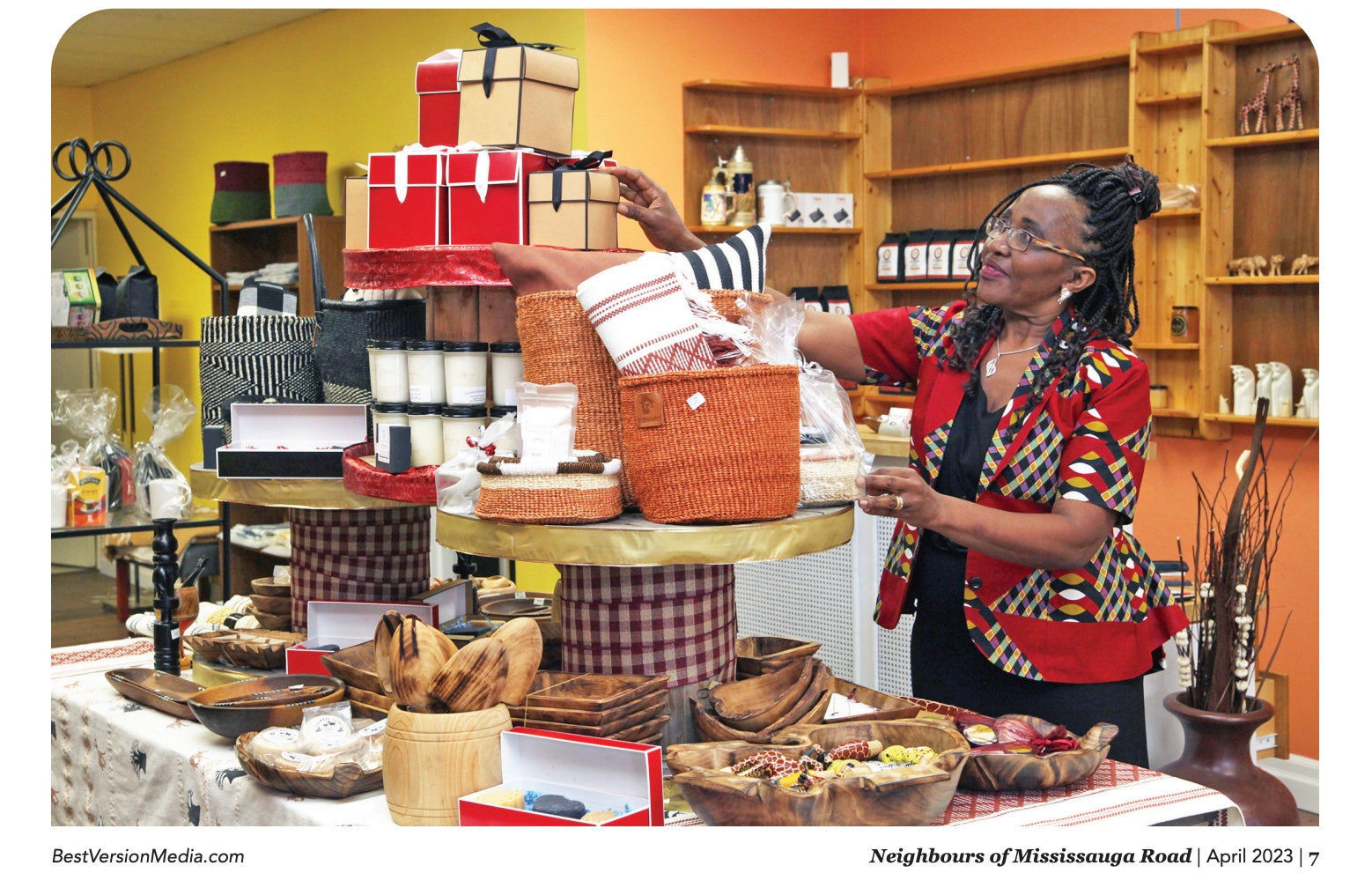
Alice Pursuing Her Passion and Improving the World
